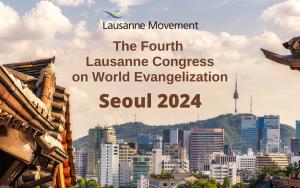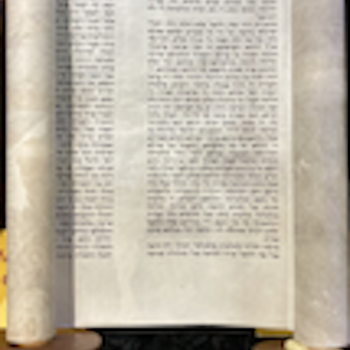Dr. Ruth Padilla DeBorst, an associate professor at Western Theological Seminary in Holland, Michigan, caused controversy Monday with her speech at the Fourth Lausanne Congress on World Evangelization in Incheon, South Korea. It caused her to have to later clarify her remarks to the 5,000 delegates in attendance after Congress Director David Bennett apologized to them for some of her remarks.
“Hostages” Held by Israel?
This conference is famous for its purpose, which is to bring together Christian leaders throughout the world to discuss world evangelism. The first conference was held in 1974 with evangelist Billy Graham as its main leader. It was thought by many attendees this week that Ms. DeBorst departed from this theme of world evangelism by remarking on the Israel-Hamas War in Gaza. She was speaking on injustices in the world which she said Christians should oppose. She mentioned “the hostages held by both Israel and Hamas,” without explaining what she meant by “the hostages held by … Israel.” And she didn’t explain this thoroughly in her later clarifying remarks. Apparently, she meant prisoners of war that Israel surely has captured, calling them “hostages.” There is a difference between prisoner and hostage, yet both are used in exchange negotiations.
“A-Critically ‘Stand with Israel'”
Then she said, with which I fully agree, “Truly, the Hamas attack almost a year ago was abhorrent and absolutely reprehensible, and truly people who live in Israel, Jewish, Palestinian and others are being threatened as I write. Their pain is our pain. At the same time, the long standing suffering of Palestinians has been compounded by the attacks on Gaza since October 7 where over 40,000 people have been killed, many of them, children. Additionally, settler attacks have only increased in the West Bank. Their pain is our pain—or it should be. However, far too many evangelicals around the world a-critically ‘stand with Israel,’ and remain oblivious to the suffering Palestinians. This injustice must be named.”
 Then she alleged concerning the Israeli-Palestinian conflict, “colonialist theologies that justify and finance oppression under the guise of some dispensational eschatology.” I address this in my book, Palestine Is Coming: The Revival of Ancient Philistia (1990), with a chapter entitled “The Church and Christian Zionism.” The latter ideology is embraced mostly by Dispensationalist Christians and Pentecostals who adopt Dispensational eschatology.
Then she alleged concerning the Israeli-Palestinian conflict, “colonialist theologies that justify and finance oppression under the guise of some dispensational eschatology.” I address this in my book, Palestine Is Coming: The Revival of Ancient Philistia (1990), with a chapter entitled “The Church and Christian Zionism.” The latter ideology is embraced mostly by Dispensationalist Christians and Pentecostals who adopt Dispensational eschatology.
In her clarifying remarks, Dr. DeBorst said her speech was “not in any way a blanket dismissal of dispensational theology … What I am naming is the troubling theological rationale sustained by some people to perpetrate injustice against certain other people.” Indeed, many Dispensationalists are Christian Zionists who give Israel a carte blanche pass on their oppression of the Palestinian people as Israel continues its internationally illegal “occupation” of the West Bank.
Congress Director Apology
In Mr. Bennet’s apology he said, “I would like to offer an apology for a presentation this week which singled out ‘dispensational eschatology’ in a critical tone, implying that it contributed to violence and injustice.” It certainly has because it has supported Israel in its injustices committed against the Palestinian people. So many Americans have an unbalanced view of the Israeli-Palestinian conflict by ignoring all the decades that Israel has foisted suffering upon Palestinians, a people who deserve their own state just as much as Israel does.
God Does Not Show Partiality
For those who think God disagrees with me about this, I would remind them that even though Jews are God’s “chosen people,” that does not mean God favors them any more than any other ethnic group in the world. It is “to the humble he shows favor” (Proverbs 3:34 NRSV), not to particular ethnic group. The Bible repeatedly states that God does not show partiality since he is no respecter of persons. “To show partiality (in judgment) is not good” (Proverbs 24:23; 28:21; cf. 18:5). And in the New Testament we read, “God is not one to show partiality. … For there is no partiality with God” (Acts 10:34; Romans 2:11). And Jesus’s brother James writes, “If you show partiality, you commit sin” (James 2:9). God made both Palestinians and Jews, thus both are his creation.














